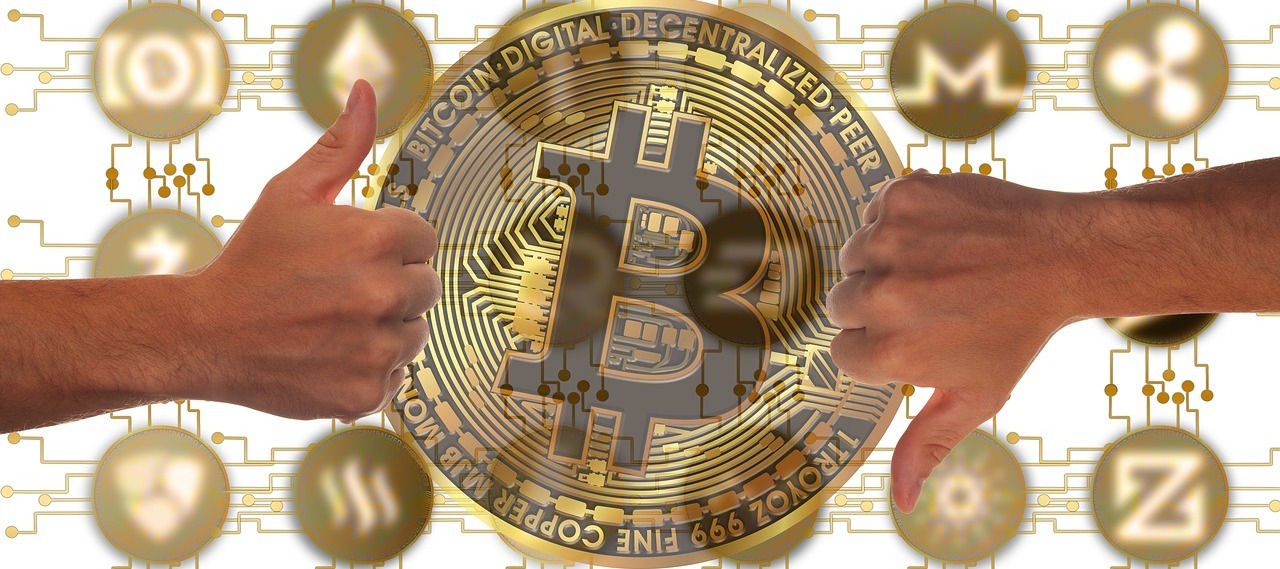
Crypto finds its safe-haven role in the Russia-Ukraine crisis
Cryptocurrency has finally started behaving like something that resembles a safe haven, with bitcoin (BTC-USD) and other digital tokens taking off on Tuesday as Russia’s incursion into Ukraine took a more dramatic turn.
As Yahoo Finance’s David Hollerith has been reporting in recent days, the move higher in crypto was significant given that the sector has been trading in virtual lockstep with Wall Street, where investors on Tuesday took fright from the surge in oil prices spurred by the conflagration in Eastern Europe.
The surge in digital coins is one of those instances where market prices can serve not just as a barometer of current conditions, but future expectations. In this case, investors have stumbled upon a powerful theme that’s likely to figure prominently in the debate over cryptocurrency oversight, regardless of how the Russia crisis plays out.
The dramatic and unprecedented move to isolate Russian President Vladimir Putin by freezing his country out of the financial system has led to a host of spillover effects.
Among them: Oligarchs with connections to Putin are scrambling to move all kinds of assets, as CNBC reported this week, lest they get seized by government officials; Switzerland has abandoned its traditional neutrality and frozen the assets of wealth Russians; and the country’s been locked out of SWIFT, a linchpin of the global financial nervous system.
All of the above demonstrate the increasing desperation Russian citizens must feel as the world targets the autocrat who ordered the invasion against Ukraine, and the oligarchs who support him.
Crypto, while notoriously volatile and prone to hacks and scams, also has a decentralized appeal that makes it hard to track and control flows. The sector is evolving into a safe harbor of sorts for those who need to evade the firewalls being erected around traditional finance.

It’s why Ukraine has become a hotbed for both illicit and legitimate cryptocurrency flows, with people from around the world donating crypto to citizens of the beleaguered country as a form of remittances. It’s also why regulators are now leaning on crypto exchanges to block all flows from Russia — a request that Binance, the world’s largest crypto trading platform, is resisting.
Bill Browder, an international asset manager specializing in Russia, told Yahoo Finance Editor-in-Chief Andy Serwer that "sanctions lists are important — government activity is important. But if every Western company stops doing business with the Russians, it's really dramatic."
That puts pressure on Western businesses like Apple (AAPL), which on Tuesday severed Russian access to its products and services in the country.
"The strategy has to be to raise the price as high as possible, and most importantly, to just deplete Vladimir Putin of resources," Browder says. "So that this war becomes so expensive, and he just doesn't have the money."
Yet it’s undoubtedly making it painful for everyday citizens caught in a tangled web of sanctions, geopolitics and a conflict many surely don’t support.
Hence why prominent bitcoin maximalist Anthony Pompliano railed against the “incredible amount of inhumanity that goes into the decision to cut off the average citizen from the global financial system. What was their crime?” he asked in Tuesday’s edition of his newsletter.
Yet the crisis in Russia leaves no doubt about where things are headed for digital currencies, and explains why bitcoin and other tokens are so firmly bid.
“Ultimately, we are watching the divergence of two financial systems,” Pompliano wrote. “The legacy infrastructure is built and run by a group of financial firms who are susceptible to the whims of their governments. The new infrastructure is built on open-source software that is run by no single individual or organization. The decentralized nature leads to a different outcome in these situations,” he added.
Crypto’s proponents have “long promoted the idea of financial freedom and inclusion ... [and] we are seeing these theories get put to the test in real-time over the last week or so. So far, so good,” Pompliano wrote.
© 2022 LeackStat.com
